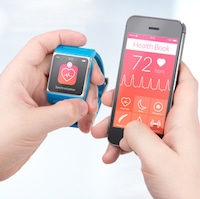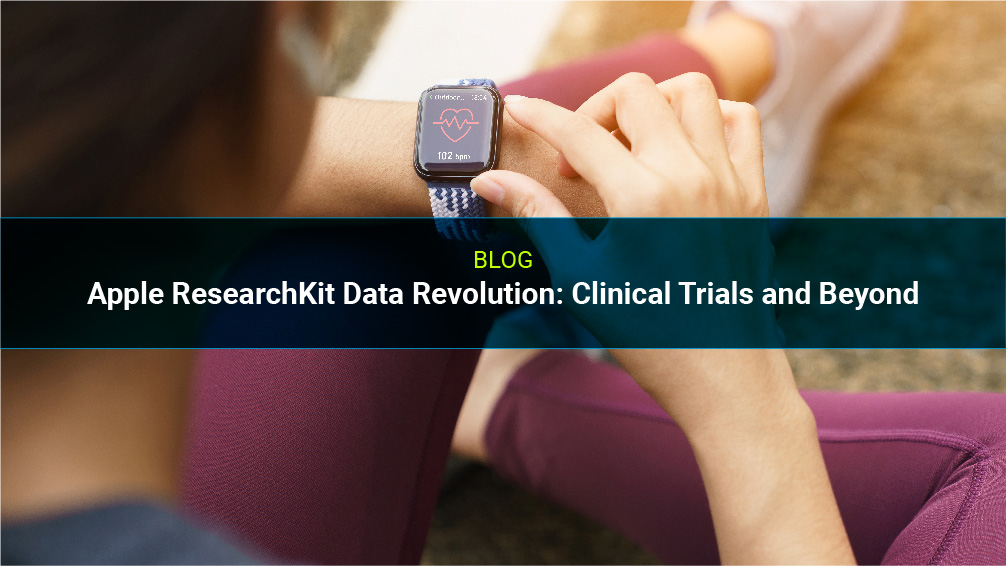Apple ResearchKit Data Revolution: Clinical Trials and Beyond

But by many accounts, the much-heralded Apple Watch and the lesser-noticed ResearchKit are about to change healthcare research big time. And in the process, significantly streamline the often labor-intensive process of clinical trial marketing.
Health and fitness is a popular sell-point for the Apple Watch, (which we're told, also tells time), and appeals to activity- and wellness-minded buyers with iPhone users. “Whether you’re walking, running, cycling, or using the most popular fitness equipment,” the ads say, “Apple Watch knows how to keep you motivated during your workouts… set goals, tracks your progress, alerts you when you reach milestones” and more.”
In no small way, the Apple Watch + iPhone combo is about health data collection and reporting. And that’s where ResearchKit for software developers ignites a tech revolution for patients, practitioners and the pharma industry.
Most consumers overlooked the initial announcement, but the rollout of apps and collaborative projects is beginning to make healthcare headlines. “ResearchKit, a software framework designed for medical and health research that helps doctors, scientists and other researchers gather data more frequently and more accurately from participants using mobile devices, is now available to researchers and developers.
“The first research apps developed using ResearchKit study asthma, breast cancer, cardiovascular disease, diabetes and Parkinson’s disease, and have enrolled over 60,000 iPhone users in just the first few weeks.”
Among many things, the ResearchKit enables individuals and others to opt-in to clinical research projects, effectively exploding the database and opening the doors to wider participation in studies and trials.
Considering that billions of people worldwide own smartphones, one prospect would be a near future “iTunes mart” for clinical trials facilitating wider public awareness and easier recruitment of candidates.
As with other innovations in health care, certain (familiar) questions are still to be answered including issues of privacy and data credibility. The potential benefits for patients, providers and the general public are significant incentive to rapidly reach solutions.
And, in addition to accelerating patient recruiting, data reporting and time-to-market in clinical trials, future ResearchKit-enabled apps and devices harbor potential benefits as a personal diagnostic tool, medication reminder system and compliance monitor.
For related reading, see: Overcoming Clinical Trial Marketing Challenges: Patient Recruitment and Retention and Apple Health App Will Change Your Healthcare Marketing Plan.
Related Articles:
Apple Health App Will Change Your Healthcare Marketing Plan
The Apple Watch Letdown: Healthcare’s Grand Disappointment
Overcoming Clinical Trial Marketing Challenges: Patient Recruitment and Retention
The Future of Healthcare Marketing is Already in Your Pocket









